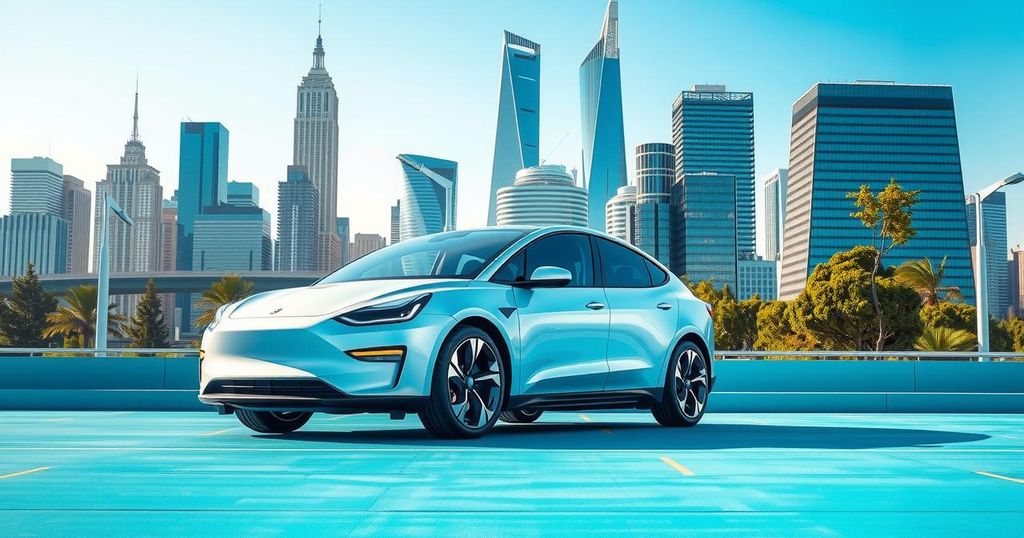Foreign Auto Brands Capitalize on NEV Growth in China

Foreign auto brands are rapidly expanding in China’s NEV sector, driven by significant investments and evolving consumer demands. Initiatives from companies like Audi, BMW, and Volkswagen highlight their strategies to tailor products for the Chinese market, supported by government policies and an open business environment. This sector’s growth is marked by collaborations and a shift towards intelligent automotive technologies.
Foreign auto brands are actively pursuing growth opportunities in China’s new energy vehicle (NEV) sector through increased investments, expansions, and collaborations. This transition towards NEVs represents a significant shift from internal combustion vehicles, creating new market possibilities, particularly in the premium segment, as articulated by Helmut Stettner, CEO of Audi FAW NEV Co., Ltd.
In March, BMW formed a partnership with Huawei to enhance in-car digital ecosystems specific to China. Additionally, Tesla’s Shanghai Megafactory recently marked a milestone by exporting the first batch of Megapack energy-storage batteries, highlighting the growing international footprint of foreign automakers in China’s NEV landscape.
According to Gao Yuning from Tsinghua University, the potential in China’s NEV market is vast, driven by a robust business environment and efficient supply chains. By 2024, NEVs in China surpassed 12 million units in production and sales, confirming the country’s dominance with 70 percent of global battery materials sourced from Chinese industries.
The Chinese government’s supportive policies, including purchase subsidies and advancements in charging infrastructure, have fostered a conducive environment for NEVs. As per the Ministry of Commerce, over 60% of vehicles procured under the subsidy policy in 2024 were NEVs, with foreign brands capturing over 35% of these purchases.
Chinese consumers’ openness to new technologies has fostered innovative opportunities for foreign automakers. There’s a notable shift in consumer priorities towards intelligent vehicle features, such as smart cockpits, as indicated by a Tesla salesperson in Changchun. This transition prompts foreign brands to adapt their offerings to better align with local consumer preferences.
In particular, Volkswagen Group has committed to the Chinese market, signing a strategic deal with FAW to introduce 11 new models by 2026, emphasizing their vision that “In China, for China” fosters alignment with domestic consumer needs. Ralf Brandstaetter, Volkswagen’s China CEO, noted the collaboration as central to their success.
Gao Yuning highlights that the continuous growth of the Chinese economy and its openness to international trade provide a strong foundation for foreign investments in the NEV sector.
Foreign auto brands are increasingly investing in China’s NEV sector, leveraging opportunities created by a favorable market and consumer preferences. With government support and a focus on innovation, these companies are reshaping their strategies to align with local demands. As they introduce tailored models and advanced technologies, their presence is set to grow, ensuring continued growth in the dynamic Chinese automotive landscape.
Original Source: www.shine.cn




